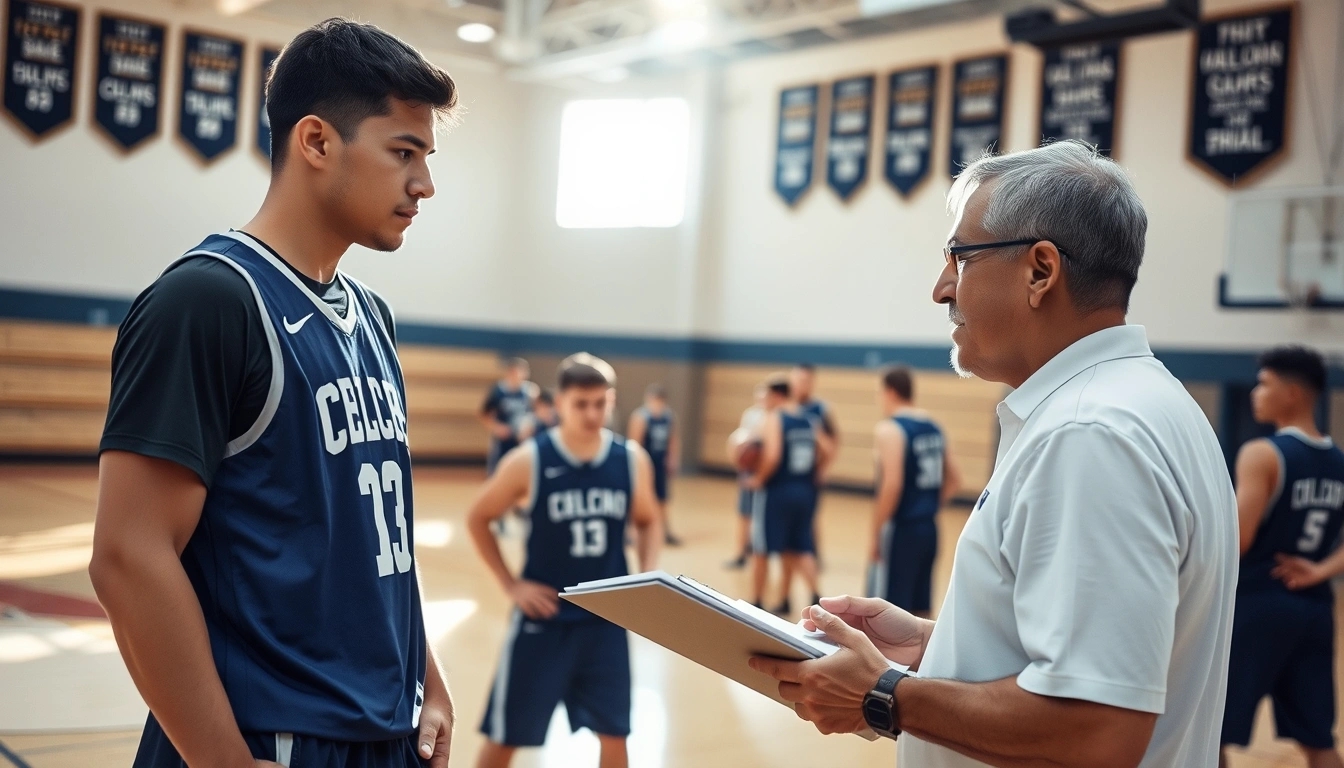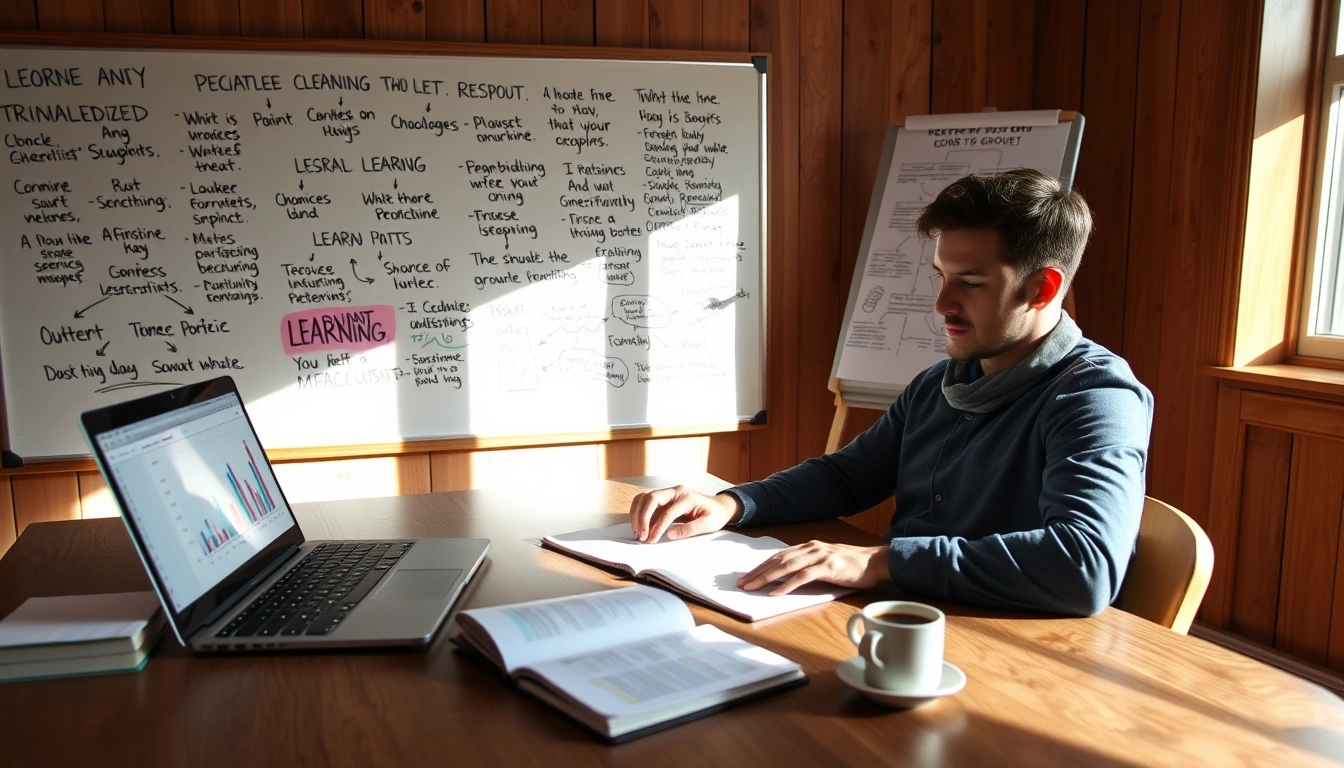Alright, let’s cut to the chase — becoming coachable isn’t just about sitting quietly and nodding your head like a bobblehead on a dashboard. Nope, it’s a whole mindset game, a tricky dance between swallowing your pride, tuning in, and actually wanting to get better. Sounds simple? Well, tell that to the countless athletes who get stuck in their own heads, thinking they already know it all. Spoiler alert: they don’t.
So, what’s the real juice behind coachability? It’s more than just hearing what your coach says. It’s about embracing feedback — even the kind that stings like a bee on a hot summer day. It’s about being humble enough to admit you’re not perfect (shocking, right?) and hungry enough to improve no matter how many times you’ve messed up. Here’s a quick breakdown:
| Key Elements of Coachability | What It Means |
|---|---|
| Active Listening | Really focusing on what’s being said, not just waiting for your turn to talk. |
| Humility | Owning your flaws and being open to change. |
| Growth Mindset | Seeing mistakes as stepping stones, not dead ends. |
| Action | Applying what you learn, not just storing it away like some dusty trophy. |
Now, before you roll your eyes and say, “Yeah, easier said than done,” let’s talk about why being coachable actually rocks. For starters, it can fast-track your skills like a rocket on steroids (minus the illegal stuff, of course). When you’re open to feedback, you’re basically telling your brain, “Hey, I want to get better, so hit me with the truth.” And guess what? That honesty is pure gold. It boosts your confidence, makes you more adaptable, and — here’s the kicker — turns you into a magnet for opportunities. Coaches love players who listen and improve. It’s like having a VIP pass to the big leagues.
But let’s get real for a second. There are some nasty roadblocks on this journey. Pride, fear of messing up, stubbornness — these are the usual suspects that keep people stuck. The trick is to recognize these barriers before they turn into concrete walls. And trust me, everyone has them. Even the pros.
- Pride: “I don’t need help” syndrome.
- Fear of Failure: Worrying that mistakes make you look weak.
- Stubbornness: Clinging to old habits like a security blanket.
Here’s a little secret: shifting your mindset from fixed to growth is the game-changer. Instead of thinking, “I’m either good at this or not,” try telling yourself, “I can get better with effort.” Sounds cheesy? Maybe. But it’s backed by science and, more importantly, by the stories of countless athletes who turned their careers around just by flipping this switch.
Still scratching your head? Let’s get practical. Here are some no-nonsense tips to become more coachable:
- Ask questions: Don’t just take feedback at face value. Dig deeper.
- Take notes: Seriously, write stuff down. Your brain loves reminders.
- Reflect: Spend time thinking about what you learned and how to apply it.
- Stay patient: Growth isn’t instant. It’s more like slow-cooked barbecue — worth the wait.
Handling tough feedback? It’s like eating your veggies — not always fun, but necessary. Instead of freaking out, try to see criticism as a tool, not a weapon. Breathe, listen, and then respond thoughtfully. You’ll be surprised how this little trick can keep your cool intact and your progress steady.
| Tip | Why It Helps |
|---|---|
| Maintain eye contact | Shows you’re engaged and respectful. |
| Paraphrase feedback | Ensures you understood correctly. |
| Ask clarifying questions | Digs deeper into the advice. |
| Avoid interrupting | Lets your coach finish their point fully. |
Finally, keep track of your journey. Use journals, apps, or even a simple checklist to mark your wins and setbacks. Seeing progress on paper (or screen) is a massive motivator and a reality check when you feel stuck.
In the end, becoming coachable isn’t about perfection. It’s about being real, open, and ready to hustle. So, next time you get that feedback — even if it feels like a slap — remember, it’s just another stepping stone on your path to greatness.
Understanding Coachability: What It Really Means
When folks toss around the word coachability, they often think it’s just about having big ears and nodding along. But nah, it’s way deeper than that. Coachability is this messy, sometimes uncomfortable dance between listening, accepting criticism, and having the guts to admit, “Hey, I’m not perfect.” It’s about being open enough to hear the stuff that stings a little — maybe even a lot — and still choosing to grow from it instead of shutting down like a turtle in its shell.
Now, let’s be real. Nobody loves getting called out or told they messed up. It’s human nature to get defensive or brush it off. But here’s the kicker: the truly coachable players, athletes, or anyone trying to level up don’t just tolerate that feedback — they embrace it. They see it as a golden ticket to getting better, faster. It’s humility in action, mixed with a hunger to improve that won’t quit, even when the feedback feels like a punch in the gut.
- Coachability means more than hearing words; it means processing them, asking questions, and sometimes even pushing back respectfully to understand better.
- It’s about vulnerability, showing up with an open mind, and not letting your ego get in the way.
- It’s the willingness to fail forward, knowing that every stumble is just a step closer to success.
Here’s a quick table to break down the mindset differences between someone who’s coachable and someone who’s not:
| Coachable Mindset | Uncoachable Mindset |
|---|---|
| Seeks feedback actively | Ignores or avoids feedback |
| Views mistakes as learning chances | Sees mistakes as personal failures |
| Open to new ideas and change | Clings to old habits stubbornly |
| Asks questions to clarify | Assumes they know it all |
| Shows humility and patience | Defensive and impatient |
So, when someone says “be coachable,” don’t just think about quiet listening. Think about that awkward, sometimes painful process of taking feedback, chewing on it, and then using it to fuel your progress. It’s about being brave enough to say, “I don’t know it all, and that’s okay.” Because guess what? No one does. And that’s exactly why coachability is the secret sauce for anyone serious about getting better — on the field, in the gym, or even in life.
Remember, coachability isn’t a switch you flip overnight. It’s a muscle you build over time, by staying curious, humble, and hungry for growth — even when it’s uncomfortable. And trust me, the payoff is worth every awkward moment.
Why Being Coachable Is a Game-Changer
Listen, if you think being coachable is just about nodding your head and doing what you’re told, you’re missing the whole point. It’s way more than that — it’s like unlocking a secret level in your personal and athletic development. Being open to coaching isn’t just some soft skill; it’s the rocket fuel that can blast your progress into the stratosphere. Seriously, those who get it tend to pick up new skills faster, boost their confidence, and somehow become magnets for opportunities. And no, this isn’t just some motivational fluff. Let’s break it down.
- Fast-tracking skills: When you’re coachable, you’re basically saying, “Hey, I’m ready to learn, even if it means hearing stuff I don’t wanna hear.” That attitude speeds up the learning curve because you’re not stuck in your own ways. Instead, you’re absorbing advice, tweaking your technique, and adapting on the fly. It’s like upgrading your software without the annoying error messages.
- Confidence boost: Funny thing is, being open to feedback actually makes you feel more confident, not less. It’s counterintuitive, right? But when you know you’re improving and you’re not afraid to admit what you don’t know, your self-belief skyrockets. That confidence isn’t fake; it’s built on real progress.
- Attracting opportunities: Coaches, scouts, teammates — they all notice when someone is coachable. It’s like a neon sign flashing “Ready for growth!” This can open doors you didn’t even know existed, from new positions on the team to sponsorships or leadership roles.
Here’s a quick table to sum up the perks:
| Benefit | What It Means | Why It Matters |
|---|---|---|
| Skill Acceleration | Rapid improvement by embracing feedback | Outpaces competitors and levels up performance |
| Confidence Growth | Stronger belief through continuous learning | Improves mental toughness and resilience |
| Opportunity Magnet | Being noticed for your attitude and adaptability | Leads to new roles, sponsorships, and career growth |
But hey, don’t get me wrong — it’s not always sunshine and rainbows. Being coachable means swallowing your pride sometimes and admitting you’re not perfect. Ouch, right? That stings. But here’s the kicker: that sting is exactly what makes you better. It’s like a bitter pill that cures you faster.
Let me throw in a quick list of why some folks resist being coachable — and why you shouldn’t be one of them:
- Pride: “I know better.” Newsflash: You probably don’t.
- Fear of failure: Nobody wants to mess up, but messing up is part of the game.
- Stubbornness: Being stuck in your ways is a fast track to nowhere.
So, if you want to be that player who everyone talks about — the one who keeps getting better and snagging every chance that comes their way — start by embracing coachability. It’s not just a skill; it’s a mindset. And trust me, once you get it, you’ll wonder why you ever resisted.
Bottom line: Being coachable is like having a superpower in sports and beyond. It turbocharges your skills, pumps up your confidence, and opens up a world of opportunities. It’s messy, it’s humbling, but man, is it worth it.

Common Barriers to Coachability
Alright, let’s cut to the chase—being coachable sounds like a no-brainer, right? Just listen, take notes, and improve. But if it were that simple, everyone would be a superstar by now. The truth is, there are some sneaky roadblocks that trip us up before we even get started. Pride, fear of failure, and stubbornness are like those annoying weeds in your garden of growth—they choke out progress if you don’t pull them out early.
Pride is probably the biggest culprit. It’s that little voice inside shouting, “I got this,” even when you clearly don’t. We all want to look good, be right, and avoid admitting we don’t know everything. But here’s the kicker: pride blinds you from seeing where you actually need help. Instead of soaking up feedback, you’re busy defending yourself or pretending to understand when you don’t. And spoiler alert—coaches can smell that from a mile away.
| Barrier | Why It Blocks Growth | How to Overcome It |
|---|---|---|
| Pride | Stops you from accepting feedback; creates defensiveness. | Practice humility; remind yourself that learning is a sign of strength. |
| Fear of Failure | Makes you avoid risks and hide mistakes. | Reframe failure as feedback; focus on progress, not perfection. |
| Stubbornness | Leads to resistance against new ideas or methods. | Stay curious; experiment with different approaches. |
Now, onto fear of failure. Nobody likes to mess up, especially when the stakes are high—think game day or a big presentation. But here’s the deal: if you’re so terrified of falling flat that you avoid trying new things, you’re basically shooting yourself in the foot. Fear makes you cling to what you know, even if it’s not working. It’s like sticking with an old pair of sneakers that give you blisters just because they’re “comfortable.”
- Recognize that failure isn’t the end of the world.
- Ask yourself: What can I learn from this?
- Celebrate small wins to build confidence.
And don’t forget stubbornness. Sometimes, we get stuck in our ways because change is uncomfortable or because we just like being right (see pride again). But stubbornness can kill growth faster than you can say “coach’s advice.” It’s that refusal to tweak your technique or listen to a different perspective, which is basically signing up for stagnation.
Tip for Dealing with Stubbornness:- Take a moment before reacting to feedback.- Ask, "Why might this suggestion help?"- Try it out for a day or two before dismissing it.- Reflect on any improvements or challenges.
Identifying these barriers is just the start. The real work is in facing them head-on, which isn’t always pretty or easy. But once you do, you unlock the door to genuine growth and faster learning. So next time you catch yourself thinking, “Nah, I don’t need that advice,” pause and ask—am I being coachable or just stubbornly stuck?
Mindset Shifts That Make You Coachable
Let’s cut to the chase: changing your mindset from “I know it all” to “I’m here to learn” isn’t some magical switch you flip overnight. It’s messy, awkward, and sometimes downright frustrating. But trust me, this shift is the secret sauce behind every athlete, artist, or pro who’s ever leveled up big time. Coachability isn’t just a buzzword tossed around in locker rooms or corporate workshops—it’s a full-on brain reboot. You gotta rewire yourself to actually want feedback, even when it stings like a bee on a hot summer day.
Think about it: when you mess up, your first instinct might be to dodge blame or get defensive. Been there, done that, right? But here’s the kicker—those mistakes? They’re pure gold. Instead of seeing them as failures, start viewing them as clues, like a treasure map guiding you closer to your goals. This mindset shift is what separates the players who stagnate from the ones who explode with growth.
- From Fixed to Growth: The fixed mindset whispers, “I’m either good at this or I’m not.” The growth mindset shouts, “I can get better if I keep trying!”
- Embrace the Suck: Accept that feedback might feel like a gut punch sometimes, but it’s a necessary evil for improvement.
- Curiosity Over Judgment: Instead of judging yourself or your coach’s advice, get curious—ask questions, dig deeper, and figure out what’s really going on.
Here’s a quick table to break down how these shifts play out in real life:
| Old Mindset | New Mindset | What It Looks Like |
|---|---|---|
| “I’m perfect as I am.” | “I’m a work in progress.” | Welcoming feedback without taking it personally. |
| “Mistakes are failures.” | “Mistakes are lessons.” | Analyzing errors to improve next time. |
| “I hate being told what to do.” | “I’m open to guidance.” | Listening actively and asking clarifying questions. |
Now, let’s be real: rewiring your brain like this isn’t a walk in the park. It takes patience, practice, and a little bit of humility (which, if you’re anything like me, can be a tough pill to swallow). But once you start craving feedback instead of fearing it, you’ll notice something wild—learning becomes faster, and you’ll find yourself stepping up your game without even sweating it.
So next time you get that feedback—whether it’s from your coach, teammate, or even a tough critic—try to resist the urge to tune out or argue back. Instead, lean in, take notes, and maybe even say, “Thanks, I needed that.” Sounds cheesy? Maybe. But it works. Because at the end of the day, being coachable isn’t about being perfect; it’s about being willing to get better, no matter how many times you have to fall on your face.
Practical Tips to Become More Coachable
Look, becoming coachable isn’t some mystical skill reserved for the chosen few; it’s more like a muscle you gotta flex regularly. You don’t just wake up one day and suddenly soak up feedback like a pro—there’s a bit of trial, error, and stubbornness involved. But here’s the kicker: simple, down-to-earth steps can flip the script entirely. Let’s break it down.
Step 1: Ask Questions — Don’t Be Shy!
This might sound obvious, but you’d be surprised how many folks just nod and pretend they get it. Instead, be that annoying kid in class who keeps raising their hand. Questions show you’re engaged, hungry for clarity, and not just waiting for your turn to talk. It’s like shining a flashlight in the dark corners of your understanding. Plus, coaches love it when you’re curious—it signals you care.
- Ask for examples if something’s vague.
- Request feedback on specific moves or decisions.
- Clarify what success looks like for a drill or task.
Step 2: Take Notes — Yes, Seriously
I get it, jotting stuff down might feel old-school or even a bit nerdy, but trust me, it works. When you write, you’re forcing your brain to process info actively, not just passively nod along. Later, when you’re practicing solo or replaying moments in your head, those notes become your secret weapon. Don’t just scribble random words—organize them into what you did well, what needs work, and what you want to ask next time.
| Category | Example Notes |
|---|---|
| Strengths | Good foot positioning during defense drills |
| Areas to Improve | Timing on passing under pressure |
| Questions | How to anticipate opponent’s moves better? |
Step 3: Reflect — The Quiet Power Move
Reflection might sound like something monks do on mountain tops, but it’s actually a game-changer for athletes too. After practice or a coaching session, take a few minutes to think back on what you learned, what confused you, and what you want to try differently next time. This isn’t about beating yourself up over mistakes; it’s about spotting patterns and making small tweaks that add up big time.
Here’s a quick checklist to guide your reflection:
- What new feedback did I get today?
- Did I resist any advice? Why?
- What’s one thing I can focus on improving tomorrow?
Bonus Tip: Embrace the Awkwardness
Let’s be honest—being coachable means swallowing your pride sometimes. You might hear stuff that stings or feel like you’re back at square one. That’s okay. Real growth rarely looks smooth. Patience, grit, and a dash of humor will get you through those awkward moments.
In short: Coachability isn’t about being perfect; it’s about being open, curious, and willing to put in the work—even when it’s uncomfortable. So next time you step onto the field or into the gym, remember: ask questions, take notes, and reflect like your progress depends on it—because it does.

How to Handle Tough Feedback Without Losing Your Cool
Let’s be honest — getting feedback sometimes feels like getting sucker-punched right in the gut. You’re standing there, maybe a little stunned, wondering if you just got roasted or if there’s actually some gold hidden in the critique. The truth? Feedback, especially the tough kind, isn’t meant to break you down but to build you up. But boy, it sure doesn’t always feel that way in the moment.
First things first: don’t take it personally. Easier said than done, right? When a coach or teammate points out your flaws or mistakes, your brain’s natural defense is to get defensive or shut down. But here’s a little secret — the best athletes and performers see feedback as a gift, not an attack. It’s like having a GPS for your growth. Without it, you’re just wandering around, hoping to get better by accident.
- Pause before reacting: Take a deep breath. Count to three. Let the initial sting fade.
- Listen actively: Focus on what’s being said, not how it’s said.
- Ask clarifying questions: “Can you give me an example?” or “What would you do differently?”
Now, here’s a quick table to break down the do’s and don’ts when handling tough feedback:
| Do’s | Don’ts |
|---|---|
| Keep an open mind | Get defensive or argue back |
| Take notes for later reflection | Dismiss feedback immediately |
| Thank the person giving feedback | Blame others or make excuses |
| Look for actionable steps | Ignore the message because of delivery style |
Here’s the kicker: sometimes, feedback feels harsh because it’s coming from someone who might not be the best communicator. Maybe they’re frustrated, tired, or just plain blunt. That doesn’t mean their message is useless. Filter out the delivery style and focus on the content. If you’re struggling to separate the two, try repeating the feedback in your own words to check your understanding. This little trick not only shows you’re engaged but also gives you a moment to process.
And hey, don’t beat yourself up if you don’t get it right immediately. Handling tough feedback is a skill — one that even pros keep sharpening. It’s okay to feel a bit raw or uncertain at first. Remember, every champion has been there, staring down criticism and deciding whether to crumble or come back stronger.
- Reflect regularly: Set aside time to review feedback and track improvements.
- Seek multiple perspectives: Don’t rely on just one voice; get a well-rounded view.
- Celebrate small wins: Progress isn’t always dramatic but it’s still progress.
To wrap it up, handling tough feedback without losing your cool is less about being perfect and more about being resilient. It’s about turning those gut punches into fuel — fuel that powers you forward instead of holding you back. So next time feedback hits hard, take a breath, listen up, and remember: growth is messy, uncomfortable, and absolutely worth it.
The Role of Active Listening in Learning Faster
Look, active listening is often tossed around like some fancy buzzword, but it’s way more than just sitting there with a blank stare and a polite nod. It’s a full-on mental workout, a dance between you and your coach where you’re not just hearing words—you’re engaging with them. Think of it as a conversation, not a lecture. You gotta be sharp, curious, and sometimes even a little rebellious to really get the most out of it.
First off, active listening means paying attention—no scrolling through your phone or daydreaming about what’s for dinner later. It’s about focusing on what your coach is saying, catching the nuances, and picking up on the stuff between the lines. Sometimes they’ll drop hints or subtle critiques that can totally change your game if you catch them early. But hey, don’t just take their word at face value. Asking questions is your secret weapon here. It’s not about being annoying; it’s about clarifying and making sure you actually get it. Like, “Wait, when you say ‘keep your elbow in,’ do you mean during the swing or just at the start?” See? That little question can save you hours of wasted practice.
- Engage actively: Don’t be a passive sponge; soak up info but also wring it out by reflecting.
- Clarify doubts: Questions aren’t a sign of weakness—they’re proof you care.
- Challenge respectfully: Sometimes pushing back helps you and your coach dig deeper.
Here’s a quick table to break down what active listening looks like in action:
| Active Listening Element | What It Means | Why It Matters |
|---|---|---|
| Focus | Zero distractions, eyes and ears on the coach | Captures full message, avoids misinterpretations |
| Clarification | Asking questions to confirm understanding | Prevents mistakes and builds confidence |
| Engagement | Providing feedback or thoughts during the talk | Deepens learning and shows commitment |
| Reflection | Thinking about what was said post-session | Turns info into actionable steps |
Now, don’t get me wrong—active listening isn’t always easy. Sometimes your coach might say stuff that stings or sounds plain wrong to your ears. That’s when you gotta step up your game and not just swallow everything blindly. Challenge ideas respectfully. That’s how you grow, by pushing the boundaries of what you know. It’s like a workout for your brain—sometimes uncomfortable, but always worth it.
And here’s a little nugget: active listening also means picking up on nonverbal cues. Your coach’s body language, tone, even pauses can tell you a lot more than words alone. You’ll start noticing patterns, like when they get excited about a certain technique or frustrated with a habit you need to break. Those subtle signals? Gold.
Practical Tips for Active Listening:- Put away distractions (phone, snacks, daydreams)- Maintain eye contact, nod occasionally but don’t fake it- Take quick notes—jot down keywords or phrases- Repeat back what you heard in your own words (“So you’re saying…”)- Ask open-ended questions (“How can I improve my follow-through?”)
Bottom line? Active listening is the secret sauce that turns coaching sessions from boring monologues into powerful learning experiences. It’s messy, it’s interactive, and yeah, it might even get a little awkward when you challenge your coach. But if you want to learn faster and actually retain what you’re taught, this is the skill you can’t afford to skip.
So next time you’re on the field or in the gym, remember: don’t just hear your coach—listen. Engage, question, reflect, and watch your progress skyrocket.
Tracking Progress: Tools and Techniques
Keeping an eye on your growth isn’t just some boring chore coaches throw at you—it’s a game-changer. Whether you’re grinding it out on the field or hustling behind the scenes, tracking progress helps you realize just how far you’ve come and what’s waiting around the corner. But hey, don’t just grab the nearest notebook and scribble away. There’s a whole arsenal of tools and techniques to make this process less of a drag and way more insightful.
- Journals: Classic, right? But don’t underestimate the power of jotting down your wins, losses, and those “aha” moments. It’s like having a conversation with your future self. You can spot patterns, figure out what’s working, and what’s just fluff. Plus, writing by hand somehow locks things into your brain better than typing on some app. Weird, but true.
- Apps: Now, if you’re the tech-savvy type, there are tons of apps out there designed to track everything from workouts to mindset shifts. Some even let you upload videos, set reminders, or connect with your coach directly. Apps like Coach’s Eye or MyFitnessPal aren’t just for pros; they’re your pocket-sized accountability buddies.
- Checklists: Simple but mighty. Breaking down big goals into bite-sized tasks and ticking them off feels oddly satisfying. It’s like giving yourself a high-five every time you check a box. Plus, it stops you from getting overwhelmed by the big picture.
But here’s the kicker: none of these tools mean much if you don’t actually use them consistently. It’s tempting to start strong and then ghost your journal or app after a week (been there, done that). The trick is to make tracking a habit, not a hassle. Set a specific time each day or week to review your notes or update your progress. Treat it like brushing your teeth—non-negotiable.
| Tool/Technique | Pros | Cons | Best For |
|---|---|---|---|
| Journals | Deep reflection, personalized, boosts memory | Time-consuming, requires discipline | Those who like writing and introspection |
| Apps | Convenient, multimedia support, reminders | Can be distracting, depends on device | Tech lovers, visual learners |
| Checklists | Simple, motivating, easy to track | May oversimplify complex goals | Goal-oriented folks, beginners |
Another cool hack is to mix and match these tools. For example, use an app for tracking workouts but keep a journal for mindset notes. Or maintain a checklist for daily habits and write weekly reflections. This combo approach covers all bases and keeps things fresh.
Practical Tips for Tracking Progress:- Pick tools YOU enjoy using (don’t force it).- Schedule regular check-ins (daily or weekly).- Celebrate small wins to stay motivated.- Be honest with yourself; growth isn’t always linear.- Share progress with a coach or buddy for accountability.
Remember, the goal isn’t to create a perfect record but to gain insights that push you forward. Sometimes you’ll see leaps, other times plateaus or even setbacks—and that’s okay. Tracking progress isn’t about being flawless; it’s about being real and ready to adjust.
So next time you wonder if all those drills, feedback sessions, and late nights are paying off, pull out your journal, app, or checklist. You’ll be surprised how much those little notes and ticks can boost your confidence and sharpen your focus. Trust me, seeing your own growth in black and white (or pixels) is one heck of a motivator.
Keep tracking, keep hustling, and watch yourself level up.

Real-Life Stories: Athletes Who Nailed Coachability
Alright, let’s dive into some juicy tales where athletes went from zero to hero, all because they got real about being coachable. It’s not always about raw talent; sometimes, it’s about swallowing your pride, listening up, and actually doing the work. Sounds simple, right? But oh boy, it’s a mountain many can’t climb. Here’s the lowdown on a few names who flipped the script by embracing feedback and smashing expectations.
1. The Underdog Who Listened
Take Jimmy, a college basketball player nobody really noticed. He was raw, a bit wild on the court, and frankly, a headache for his coaches. Instead of tuning out criticism (which he was tempted to do), Jimmy started asking questions like a sponge. “Why am I missing those shots? What’s my positioning off the ball?” He took notes, watched game tapes obsessively, and stayed late for drills. Fast forward two seasons, and Jimmy’s not just a starter; he’s leading the team in assists and earning respect from pros scouting him.
| Athlete | Initial Struggle | Coachability Action | Outcome |
|---|---|---|---|
| Jimmy | Inconsistent shooting, poor positioning | Asked questions, took notes, extra practice | Team leader, pro scout interest |
| Sara | Refused to accept mistakes, fixed mindset | Shifted mindset, embraced feedback | Improved performance, national champion |
| Marcus | Stubborn, ignored coaching advice | Learned active listening, reflected on feedback | Key player, team MVP |
2. Sara’s Mindset Makeover
Sara was a track star with all the talent in the world but a fixed mindset that held her back. She thought she was either “naturally good” or not, and coaching felt like nagging. Then, bam! Her coach sat her down and laid it out straight — growth mindset isn’t just fancy talk, it’s survival. Sara started to see mistakes as stepping stones, not dead ends. She even started volunteering for extra drills she used to dodge. Result? She didn’t just improve; she crushed it at the national championships.
- Key takeaway: Mindset shifts are messy but powerful.
- Don’t expect overnight miracles; it’s about consistent effort.
- Feedback isn’t a personal attack — it’s your cheat code.
3. Marcus: From Stubborn to MVP
Marcus was that guy who thought he knew it all. Coaches tried to guide him, but he’d just nod and do his own thing. Surprise, surprise — his performance plateaued. Then, a mentor challenged him to try “active listening.” This meant actually engaging during feedback sessions, asking clarifying questions, and reflecting on what he heard. It was awkward at first, but Marcus soon realized this wasn’t just about being polite — it was about leveling up. His game exploded, and he snagged the MVP trophy by the season’s end.
Practical Tips from These Stories:- Ask specific questions when you get feedback.- Keep a journal of what coaches say and your progress.- Reflect daily: What worked? What flopped? Why?- Embrace mistakes as learning gold mines.- Stay humble; nobody’s perfect, not even the pros.
So yeah, these stories aren’t fairy tales. They’re proof that coachability isn’t some fluffy concept — it’s the secret sauce behind many success stories. Next time you get some tough love from a coach, don’t roll your eyes. Instead, lean in, take notes, and maybe, just maybe, you’ll be the next one rewriting the playbook.
Frequently Asked Questions
- What does it really mean to be coachable?
Being coachable goes way beyond just hearing advice. It means you’re open to feedback, willing to admit when you don’t know something, and ready to grow—even if it feels uncomfortable. Think of it as having a mindset that treats every critique like a treasure map leading to your next level.
- Why is coachability so important for learning faster?
When you’re coachable, you’re basically turbocharging your growth engine. It helps you absorb new skills quickly, build confidence, and attract opportunities like a magnet. Imagine it as upgrading your brain’s software to process lessons at lightning speed.
- What common hurdles stop people from being coachable?
Pride, fear of failure, and stubbornness are the usual suspects. They act like invisible walls, blocking your path to improvement. Recognizing these barriers is the first step to knocking them down and opening the door to real progress.
- How can I shift my mindset to become more coachable?
Switching from a fixed mindset to a growth mindset is key. Instead of fearing mistakes, start seeing them as golden opportunities to learn. It’s like rewiring your brain to crave feedback instead of avoiding it—turning setbacks into setups for success.
- What practical steps can I take to become more coachable?
Start simple: ask questions, take notes, and reflect on what you hear. These small habits transform you from a passive listener into an active learner, soaking up knowledge like a sponge and turning it into action.
- How should I handle tough feedback without getting defensive?
Think of tough feedback as a punch that builds muscle. It might sting, but it’s essential for growth. Take a deep breath, listen carefully, and focus on what you can improve rather than taking it personally. This approach keeps your cool and keeps you moving forward.
- What role does active listening play in learning faster?
Active listening isn’t just nodding along—it’s engaging fully, asking clarifying questions, and even challenging your coach when needed. It’s like turning on a spotlight that reveals hidden gems in the advice you receive.
- How can I track my progress effectively?
Use journals, apps, or simple checklists to keep an eye on your growth. Tracking progress is like having a map that shows how far you’ve come and points out the next milestones to conquer.
- Are there real examples of athletes who succeeded by being coachable?
Absolutely! Many champions started as underdogs who embraced feedback and stayed humble. Their stories prove that coachability can shatter expectations and transform careers—turning ordinary players into legends.












